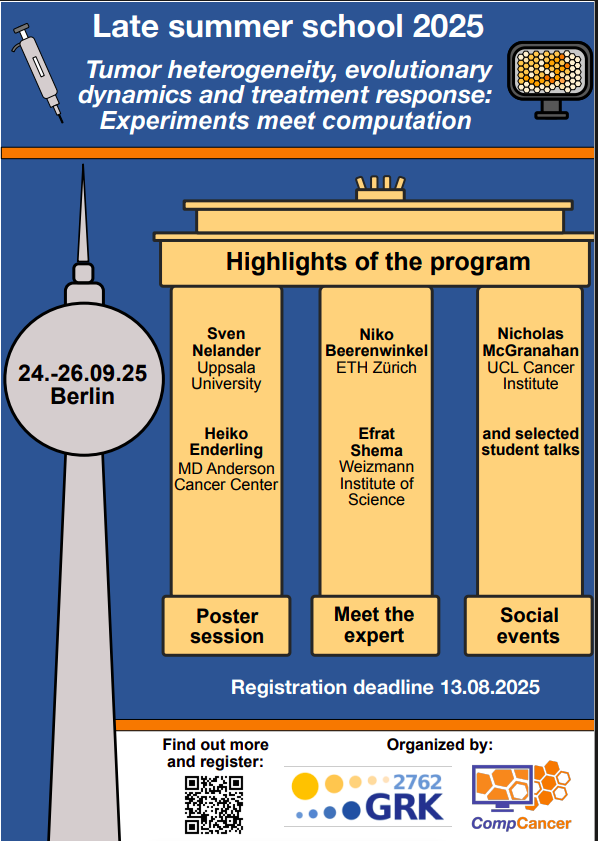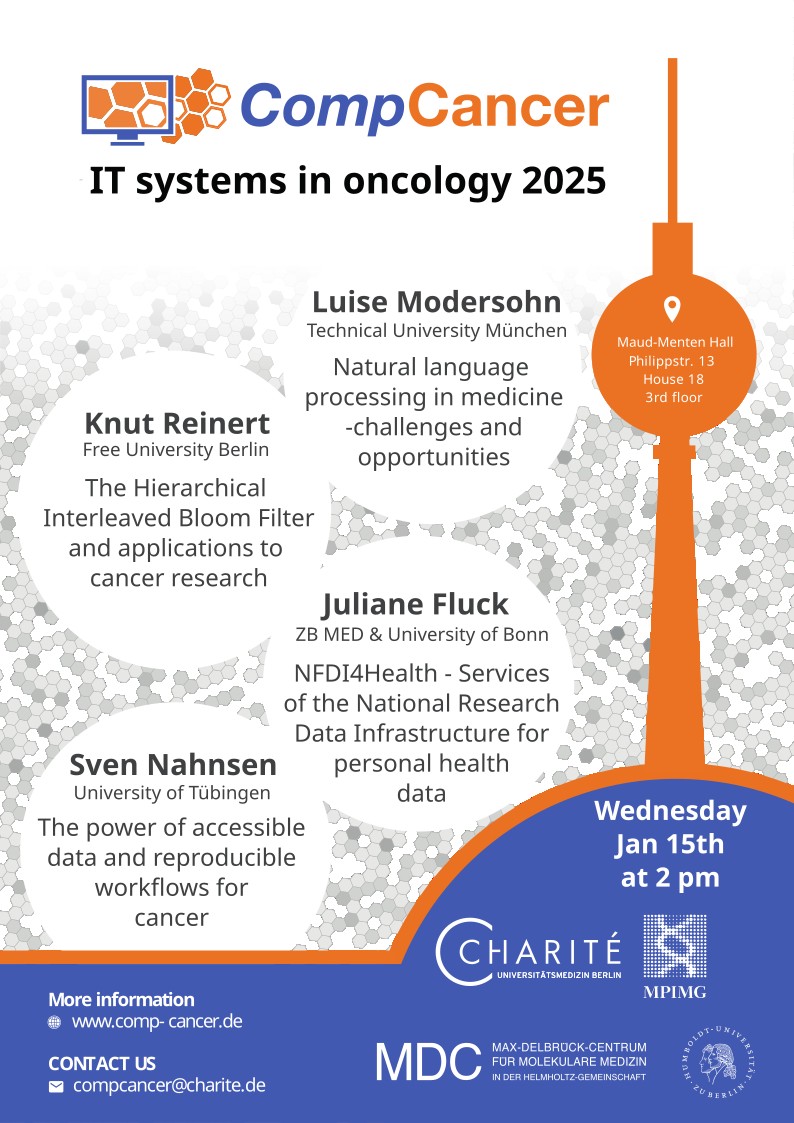The paper of Carolin Ector, one of our PhD students, was accepted in Nature Communications!
Congratulations!
About the recently accepted paper:
Our research addresses a highly topical issue in the field of personalized circadian medicine by describing the optimal timing for treatment in the context of cancer. A related paper recently published has already attracted international attention.
Overall, the topic promises to revolutionize many of the ongoing treatment strategies by focusing on the patient's internal biological clock. This has also been highlighted recently in the general press.
Our article, takes this to the next level by now making it possible to systematically discover optimal treatment times for specific tumor subtypes (personalized) and drugs.
As one of the reviewers of the manuscript said: “This approach could be the beginning of a pipeline to phenotype cancers that can make a big impact in the future. ”
An earlier version of our manuscript can be found on bioRxiv.
Summary | What is the optimal time of day for cancer treatment?
Circadian rhythms, the internal biological cycles that regulate essential processes such as wakefulness and sleep, are crucial for maintaining overall health. Disruptions in these rhythms can have profound impacts on health, contributing to various diseases. Aligning medical treatments with a patient's circadian clock can significantly enhance the effectiveness of therapies.
Despite the known benefits, the clinical application of circadian-based treatments has been limited by the lack of efficient strategies to determine the optimal timing for specific drugs.
Addressing this critical gap, an interdisciplinary international team of researchers, led by the Granada Lab at Charité Berlin, has developed a pioneering high-throughput method to analyze how cancer cells respond to drugs at different times of the day. This innovative approach has enabled the identification of optimal treatment times that maximize the efficacy of cancer therapies while minimizing their toxicity.
By employing multiple-live reporter systems to monitor circadian rhythms and implementing cutting-edge time-of-day treatment protocols, the team has created a versatile framework. Their findings reveal that specific treatment timings can significantly enhance tumor cell death and reduce side effects.
The implications of this research are profound. By pinpointing the most responsive cell types and drug combinations, the study paves the way for more personalized and precise cancer therapies. This breakthrough underscores the importance of timing in cancer treatments and holds the potential to transform clinical practices.


